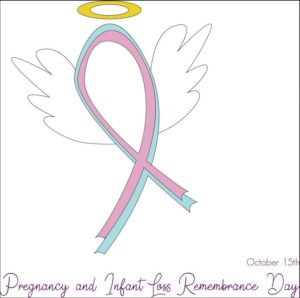
One of the hardest and most lonely experiences of my life was when I suffered a miscarriage at around the 12th week of my third pregnancy. Having already given birth to two healthy, amazing children, I felt an extreme amount of guilt around my feelings of grief.
I felt like I didn’t deserve to grieve, especially when so many women suffer multiple miscarriages and are unable to carry a child to full term.
Just the day before I had been to an ultrasound and seen the heartbeat, my husband and I were excited to add a third child to our family and we had shared with family and friends that we were expecting. We had even thought about names in our excitement. I never expected my pregnancy to end so abruptly.
Given that so many wait to share the news until after they reach the 12 week point, there are countless women who go through losses privately, no one even knowing that they were pregnant to begin with.
Whilst I was going through my miscarriage, I felt awful. Physically and mentally it was such a struggle to get out of bed in the mornings, to go out in public feeling this intense loss. It happened right before Halloween and it took every ounce of strength to take my kids out trick or treating, smiling at the other families in the community and making small talk when I was still losing my baby.
I blamed myself for the loss. Did I over exert myself? Was I not taking proper care of myself during the pregnancy? Did I miss warning signs? I had never spoken with any of my friends or family about pregnancy loss, so I didn’t know what to think or feel.
My husband found it hard to show his feelings of grief, I knew he was shocked and trying to process his own feelings, but that he also felt he needed to take care of me causing him to stuff his feelings down in an attempt to be strong for me. Honestly, in that moment, I wanted to sit and cry together, I wasn’t looking to him to hold it all together. We did come through the experience stronger, but I wish he had felt that he also had a right to openly grieve the loss of our child.
It was only when I felt I had to share what had happened with some close friends and family members did I realize how common this is. The Society of Obstetricians and Gynaecologists of Ontario (SOGC) estimates 15-20% of pregnancies end in miscarriage, although this number is likely closer to 1 in 4 pregnancies. Hearing from friends who had suffered through multiple miscarriages made me sad that we don’t openly talk about this. I would have wanted to be there for them when they went through that, rather than finding out years later.
For something that happens in 1 in 4 pregnancies, we also don’t seem to have a health care system that is ready and prepared to care for women going through pregnancy loss. The doctors who cared for me lacked compassion, empathy and the right tools in order to provide me with support. It was all very clinical, which only added to my feelings of shame/guilt/grief.
Having experienced this, I want to offer the following advice, things I wish I had known/done when it happened:
- Allow yourself to grieve, find a support group, a therapist or other professional, talk to someone you trust and don’t bottle up your feelings.
- If you have a partner, encourage them to let their feelings out too. Maybe seek the help of a trained mental health professional together, or seek out a trusted friend or family member, or religious leader to talk with.
- Take all the time you need to recover physically. As women, especially when we have other children to care for, we expect ourselves to keep going. This is unrealistic and can lead to physical harm if you don’t allow yourself the time for your body to recover.
- Remember there is no right or wrong way to feel. Grief is a completely unique experience; don’t feel badly about how you express your grief.
- Shut down negative comments. The worst part about sharing your experience is some people will say things that cause further pain.
Comments like;
“this is why you shouldn’t have told anyone you are pregnant; we always waited until the second trimester.”
“When are you going to start trying again?”
“At least you already have kids.”
“Do you think ________________ caused it?”
“At least you were only _____ weeks along.”
These comments only pick at the wound and will not help you move forward. If you have people like that in your circle of family and friends, firmly tell them that their comments are unhelpful and suggest a way they could help:
“It’s not helpful when you say that, I feel _____________ when you make those comments, what would be really helpful is if you could ___________________.” - Don’t put pressure on yourself to try again. For many the idea of going through another pregnancy is extremely stressful and daunting. For those who are able to get pregnant again, they can experience high levels of anxiety during their next pregnancy, and be constantly worried that it will end again.
- Talk openly with your other children about the loss (in an age appropriate way). We need to help the next generation be more open with these experiences.
- Acknowledge the child if you feel comfortable doing this. Each year on the anniversary of our loss, our family goes to buy an angel that we place around our home. Our faith is important to us, and we want to always keep our “angel baby” in our hearts. This could look different for each family, maybe you go to a certain place on the anniversary (or due date), or you take the day off and plan a day of self care, or plant a garden that you add to each year. I have always found that acknowledging my child and what that child would have meant to me and our family an important part of my continued healing.
- Try to stay hopeful for the future of your family. Take time to think and discuss with your partner about how you both feel regarding growing your family and seek the help of a professional if your views don’t line up.
- Take all the time you need to recover emotionally. There is no timeline for grief. Just because somebody else moved through their loss quicker, doesn’t mean you should too.
If you or someone you know is going through a pregnancy loss, please do not hesitate to reach out to us for help. There are also free resources to use, St. Leonard’s crisis line is 519.759.7188.
Sunnybrook hospital also has this page for resources and runs support groups https://pailnetwork.sunnybrook.ca/support-for-families-menu/
This article is not meant to replace seeking the help of a trained professional and is an article based on one person’s experience. Pregnancy loss is unique to each individual and there is not a “one size fits all approach” to recovering.












 Sharon Walker, MSW, RSW
Sharon Walker, MSW, RSW Jordon Iorio Hons. BA, RSW
Jordon Iorio Hons. BA, RSW Christine Bibby, B.S.W., M.S.W., R.S.W.
Christine Bibby, B.S.W., M.S.W., R.S.W. Brianna Kerr, RSW
Brianna Kerr, RSW Danielle Vanderpost, RSW
Danielle Vanderpost, RSW Daniela Switzer, MA, C.PSYCH
Daniela Switzer, MA, C.PSYCH Tammy Adams
Tammy Adams Jade Bates, RMT
Jade Bates, RMT Caitlin Schneider
Caitlin Schneider Dr. Crysana Copland
Dr. Crysana Copland
 Amy Dougley
Amy Dougley Emily Kamminga
Emily Kamminga Bill Dungey, RSW
Bill Dungey, RSW



 Jessica Moore, RSW
Jessica Moore, RSW Abigail Wragge, RSW
Abigail Wragge, RSW Melanie Clucas
Melanie Clucas Ally Legault
Ally Legault Kunle Ifabiyi
Kunle Ifabiyi Tammy Prince
Tammy Prince
